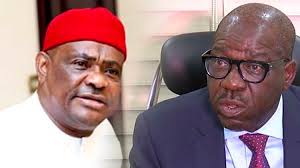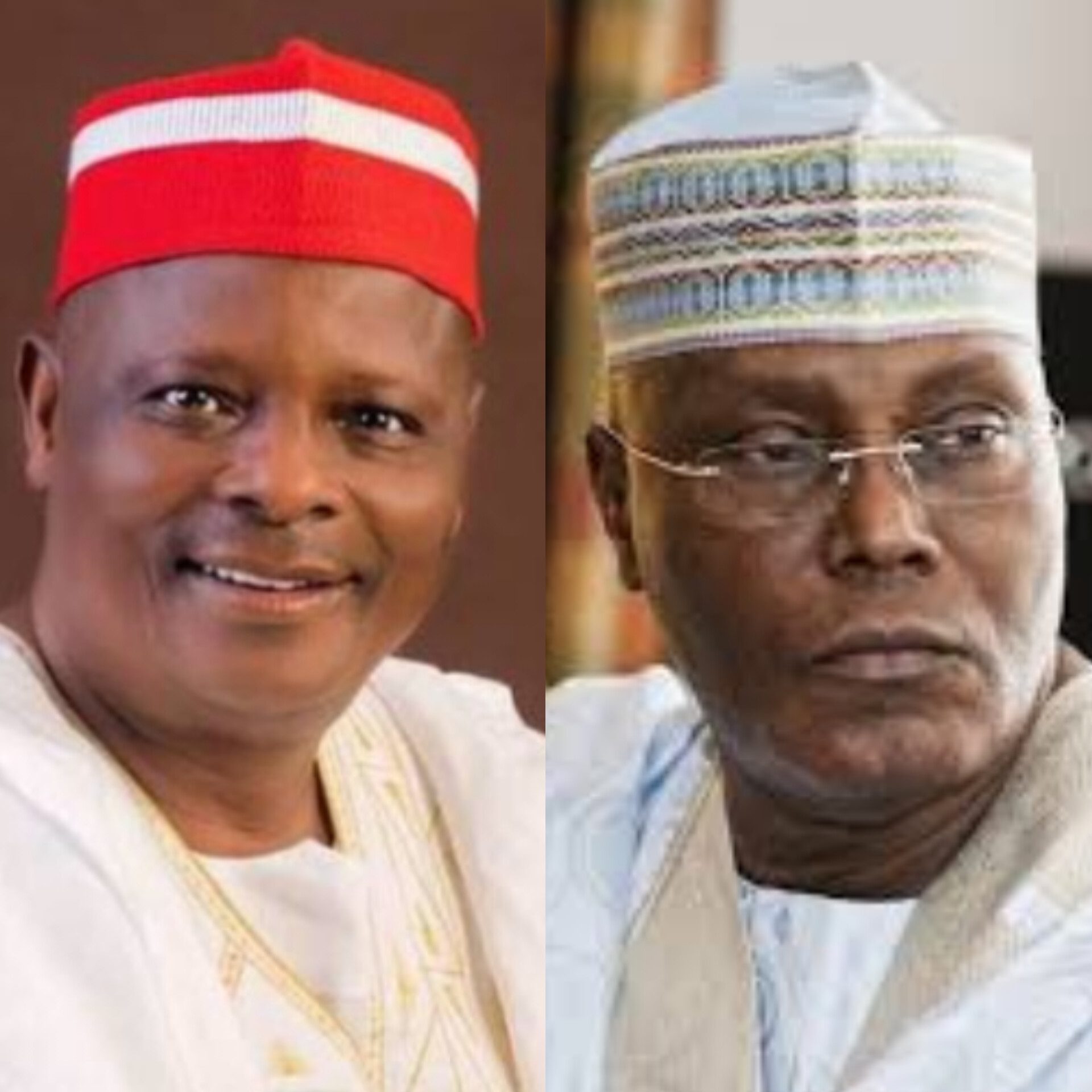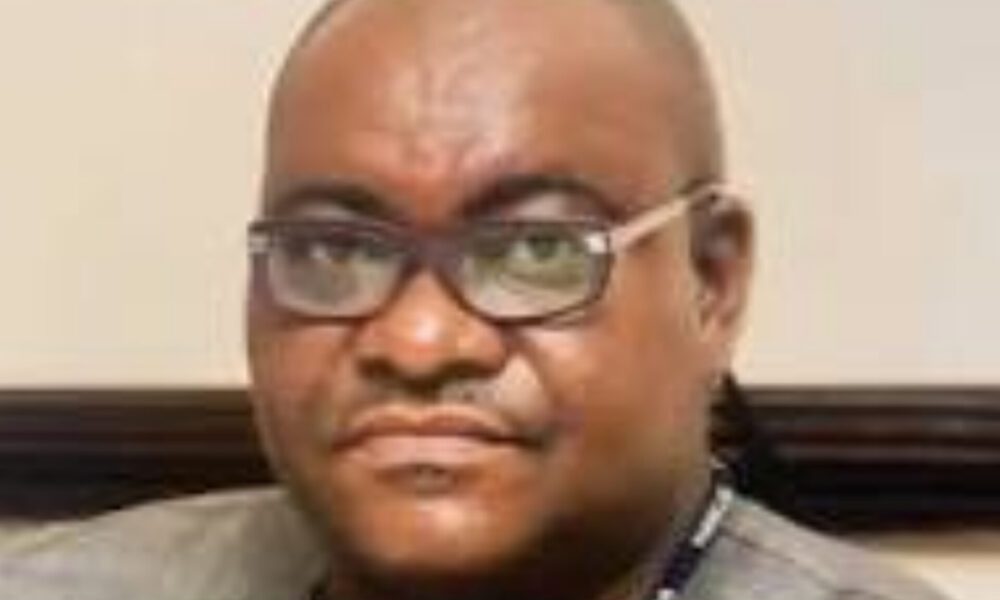By Ehichioya Ezomon
The All Progressives Congress (APC) certainly has its work cut out, as the hearing proper begins today, January 13, 2025, into the petitions filed by seven political parties against the declaration of Senator Monday Okpebholo as winner of the governorship election in Edo State on September 21, 2024.
While six of the parties question the credibility of the poll, the focus is on the Peoples Democratic Party (PDP), whose candidate, Dr Asue Ighodalo, came second with 247,274 votes to Okpebholo’s score of 291,667 votes – giving a margin of lead of 44,393 votes.
The PDP claims that those figures were manipulated by the APC, the Independent National Electoral Commission (INEC) and the Police, to favour Okpebholo and disfavour Ighodalo, who the PDP says won the election in a landslide.
The PDP avers that – save cheating via disfranchisement of voters; suppression of votes; over-voting; vote-buying; and connivance of the APC, INEC and the Police to “gift” victory to Okpebholo – Ighodalo won the poll, and should be declared as Governor of Edo State.
Ighodalo also asserts on a Channels TV’s ‘Politics Today’ on September 12, 2024, that: “There was a collusion between the INEC and the police to suppress the will of the people of Edo State. People of Edo State purposely voted for us (PDP). We won the election clearly.
“But we have serious collusion by INEC and the APC working towards votes not counting… But this time around, we will go through the judicial process and the vote will count. We are quite clear that with the evidence we have, we will show clearly that we won the election. And the mandate of the people will be upheld.”
In the United States, the burden of proof most generally places obligation on a party to prove its allegations at trial. In a civil case, as per Wikipedia, “the plaintiff sets forth its allegations in a complaint, petition or other pleading. The defendant is then required to file a responsive pleading denying some or all of the allegations and setting forth any affirmative facts in defence. Each party has the burden of proof of its allegations.”
Similarly in civil cases in Nigeria, the burden of proof is generally cast on the party “who asserts the affirmation of a particular issue.” In other words, “the burden rests on the party, whether plaintiff or defendant, who substantially asserts the affirmative of an issue,” the Supreme Court ruled in Senator Smart Adeyemi (Appellant) and the APC, INEC and Ahmed Usman Ododo (Respondents).
As reported by Optimum Publishers Limited, Publishers of the Nigerian Monthly Law Report (NMLR) (An affiliate of Babalakin & Co.), Adeyemi, a defeated contestant in the April 14, 2023, APC primary in Kogi State, contended that failure to conduct the primary in substantial compliance with the law, the burden was on the APC to prove how Ododo won the primary.
But in the judgment by a five-member panel of Justices, delivered by Emmanuel Akomaye Agim (JSC) on Monday, October, 23, 2023, the Apex Court held that, “the party that has the primary legal burden to prove the existence or non-existence of any facts, is the one who desires a court to give judgment as to any legal right or liability dependent on the existence or non-existence of facts which he asserts.”
The Court held further that Section 133(1) of the Evidence Act specifically provides that whether the Appellant is making an affirmative assertion i.e., the existence of a fact or a negative assertion i.e., the non-existence of a fact, “the burden of first proving either of the two lies on the party against whom the whole judgment would be given if no evidence is led on either side.” (Egharevba v Osagie (2009) 18 NWLR (Pt. 1173) at 299)
The Court referred to its decision in Shitta-Bey v A-G Federation (1978) 7 SCNJ 264 Pg. 287, that apart from the presumption of regularity, “there is the presumption that where there is no evidence to the contrary, things are presumed to have been rightly and properly done.”
“The Court also held that where allegations of crime are made in an election matter, the standard of proof is even high, as election matters are not exempt from the law that says that an allegation of crime in any proceedings must be proved beyond reasonable doubt.
“On the whole, the Court held that in the instant case, the Appellant (Adeyemi) made certain assertions regarding the conduct of the 1st Respondent’s (APC) primary election, and by the provisions of the law, he ought to adduce evidence to support these assertions. However, he claimed that since there was no primary election, he did not have any result to tender, when he could have tendered other affidavit evidence from his agents in the wards all over Kogi State to substantiate his claim.
“The Court found that, on the other hand, the Respondents produced evidence which proved the fact that the primary election was indeed, conducted, with the 2nd Respondent (INEC) tendering before the trial court the primary election results and reports on the conduct of the primary election in the various local governments duly signed by its electoral officers.”
Also, in a piece, “Analysis of the Burden of Proof on Defendants in Criminal Cases: The Dust not Settled,” published on July 21, 2017, Jide Bodede, Managing Partner at Lawfields Solicitors & Advocates, cited Muhammad JSC, in Olonade v Sowemimo (2014) LPELR-22914(SC), 27, as explaining the meaning of the standard of proof in civil cases, the balance of probabilities, thus:
“My Lords, in a civil matter such as this, the court decides the case on the balance of probabilities or preponderance of evidence. The trial court does this by first deciding which evidence it accepts from each of the parties, putting the accepted evidence adduced by the plaintiff on one side of the imaginary scale and that of the defendant on the other side of the scale and weighing them together.
“The court then decides which side’s evidence is heavier, not by the number of witnesses called by either party or on the basis of the one being oral and the other being documentary, but by the quality or probative value of the evidence be it oral and/or documentary.”
From the foregoing, it’s clear that the burden of proof in the Edo governorship petitions is no less imperative on APC/Okpebholo than it’s on PDP/Ighodalo; both sides are required to prove their counter-petitions. But while PDP/Ighodalo have the burden to “prove beyond reasonable doubt,” APC/Okpebholo have the evidential burden to prove “the probability of the defence or to create a reasonable doubt in the case of the prosecution.”
Thus, APC/Okpebholo should have the facts and evidence to counter PDP/Ighodalo’s claim that unlike the figures the INEC declared for the parties on September 22, they won the votes in each of the polling units, wards and councils in contention, and that their total votes are authentic, and a true reflection of the votes cast on September 21.
Meanwhile, in their defence, APC/Okpebholo, apparently picking the “low-hanging fruit” first, have urged the tribunal to dismiss the PDP/Ighodalo petition on grounds of “incompetence, and not filed in accordance with the extant law.” The APC counsel, Ferdinand Orbih (SAN), canvassed this position on December 18 at the close of pre-hearings into the petitions.
Orbih, as reported by the News Agency of Nigeria (NAN), while noting that further grounds for seeking the dismissal of the petition are contained in the motion paper dated November 30, and supported by a seven-paragraph affidavit, also prayed for expunging of some paragraphs of the petition, and urged the tribunal to rule on the motion before it commenced hearing into the petition, even as he asked the tribunal to hands-off the petition “for lack of jurisdiction.”
But Ken Mozia (SAN), a lead counsel for Ighodalo, who’d also moved four different motions, for the tribunal to expunge various paragraphs in the replies of INEC, APC and Okpebholo to PDP’s petition, urged the tribunal to discountenance the APC submission, as the PDP had filed a reply and counter-affidavit to challenge APC’s motion, which he sought its dismissal “for lack of merit.”
APC/Okpebholo’s cause may be helped by the INEC, which’s expected to defend its declaration of Okpebholo as Governor, and debunk the PDP/Ighodalo allegation that the APC and the Police pressured top officials of the commission to manipulate the collated figures in favour of Okpebholo.
Governor Okpebholo’s denied PDP/Ighodalo’s charge of rigging his way to the Osadebey Avenue Government House in Benin City, claiming the PDP’s caught up in the web of writing and announcing “fake results” sourced from an equally “fake IReV” portal, which mimicked the official IReV portal, and yet “crying that somebody rigged the election.”
At a reception in his honour by the Esan people of Edo Central at Irrua, headquarters of Esan Central local government area on November 30, Okpebholo stated: “The people, who wrote results and were announcing fake results on the internet, are the same people crying today that somebody rigged the election.
“It is sad to say that the criminals are crying today that they have lost, and will continue to lose. They are spending money day and night and wasting their money, and they will wait in vain. Edo people have spoken. They have chosen the path of development, peace, and unity. This is what Edo people have chosen, and that is how it will remain.”
Recall, also, the APC’s allegation that then-outgoing Governor Godwin Obaseki cut short his terminal leave overseas in October 2024, and returned with a “Sophisticated Infrared-Driven Technology, with preloaded results, to manipulate the INEC database.”
As posted by “Akpakomiza Media Strikers” – one of pro-Okpebholo political groups, “credible sources have raised concerns about the true intent behind Obaseki’s recent trip to Italy, shortly after the Edo State gubernatorial election.”
“Obaseki is said to have access to a specialised software capable of interfering with the INEC portal. It is claimed that this infrared-driven software has been pre-configured to alter the election data once Obaseki gains access to the relevant systems,” the group added.
What about APC’s claim on October 10 – during the political parties’ inspection of INEC’s materials used for the September 21 poll – that the commission conveyed the materials with Edo State government’s vehicles from the Central Bank of Nigeria (CBN) to the INEC office in Benin City, thus raising suspicion of possible tampering with the evidence by the PDP/Ighodalo team?
The inspection of the poll materials was postponed from October 9 to 10, to 11 and then indefinitely due either to disruption by armed thugs, APC-PDP couldn’t agree to the modalities for the inspection, or the APC refused to proceed until its petition – regarding use of government’s vehicles to convey the BVAS machines and other materials – was attended to by the INEC, the Police and the Department of State Services (DSS).
Counsel to APC/Okpebholo, Victor Ohionsumua, told journalists on October 10 that the Edo APC chairman, Emperor Jarrett Tenebe, had observed that the electoral materials were brought into the INEC complex in Edo government’s vehicles, and “on that basis, we raised an objection that the party would only return for the inspection once the petition was addressed.”
“The INEC legal officer wanted to move forward with the inspection without directives from the REC (Resident Electoral Commissioner). We insisted on hearing from the REC, and that our petition must be addressed before proceeding. During this, the situation became chaotic, and we began hearing gunshots outside the complex. The INEC Director of Operations then decided to adjourn the inspection indefinitely, citing security concerns.”
Why would the INEC convey very sensitive electoral materials – billed for inspection by avowed rival parties – with vehicles of the state government that’s led by the PDP and Governor Obaseki, who’d “anointed” Ighodalo to succeed him in November 2024?
If true to their conviction, APC/Okpebholo can connect the “figures” bandy by PDP/Ighodalo to the alleged “pre-configured infrared-driven software capable of interfering with election data,” and the probable altering of the BVAS machines and other voting materials reportedly conveyed in Edo government’s vehicles to the INEC office in Benin City.
Nonetheless, APC/Okpebholo should worry that PDP/Ighodalo’s allegations could alter the status quo, in light of Ighodalo’s claim that, “we are quite clear that with the evidence we have, we will show clearly that we won the election, and the mandate of the people will be upheld.”
APC/Okpebholo need to rebutt the PDP/Ighodalo allegations, seriatim. Did they manipulate the process to disenfranchise voters, suppress votes, over-vote and buy votes? And did they connivance with the INEC and the Police to reduce Ighodalo’s votes and inflate Okpebholo’s scores?
Surely, the three-man tribunal of Justices Wilfred Kpochi A.B. Yusuf and A.A. Adewole will, from today, January 13, have their hands full in PDP/Ighodalo’s avowal to “retrieve our stolen mandate,” which APC/Okpebholo dismiss they didn’t have in the first place!
The panel, chaired by Justice Kpochi, has barely four months remaining of the six months (180 days) mandated by the electoral law to consider the petitions and return a verdict that should reflect the will of Edo people, as exercised through the ballot on September 21, 2024. Let the legal fireworks begin!
Mr Ezomon, Journalist and Media Consultant, writes from Lagos, Nigeria. Can be reached on X, Threads, Facebook, Instagram and WhatsApp @EhichioyaEzomon. Tel: 08033078357





